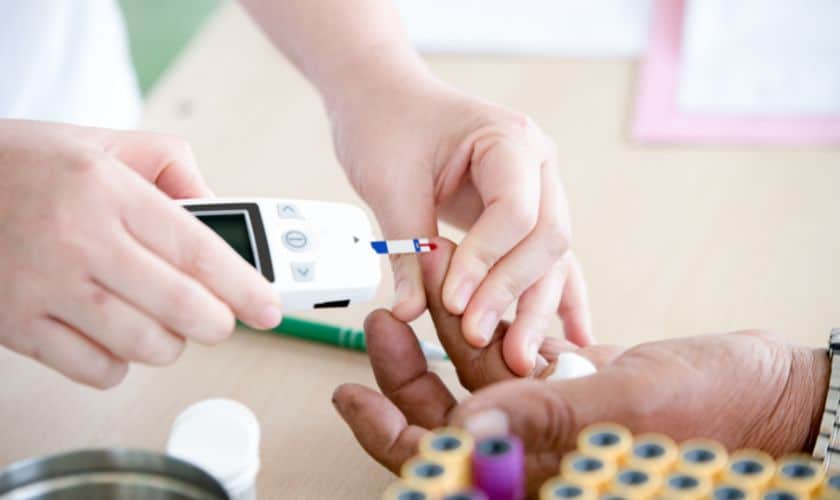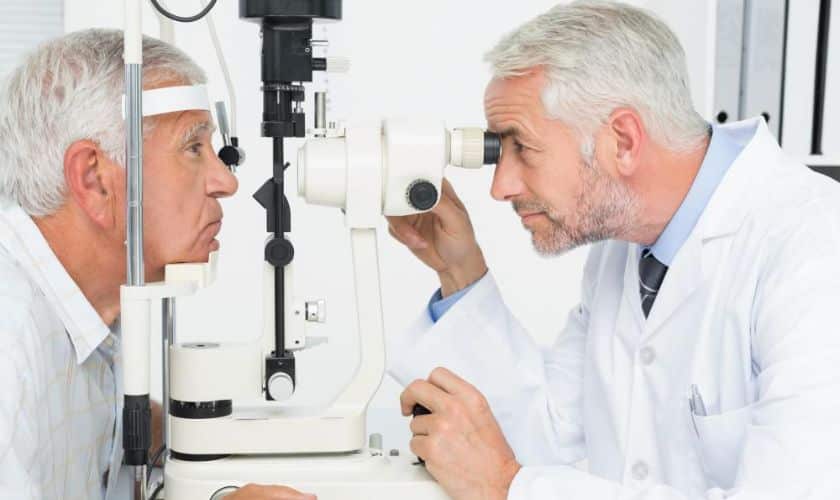Browse Eyewear

Are you aware that diabetes can cause severe damage to your eyesight? With the number of diabetic patients rising, it’s crucial to understand the importance of regular eye examinations. In this blog post, we’ll examine why diabetic eye exams are essential and how they can help detect potential risks early on. From preventing blindness to maintaining healthy vision, learn about the benefits of staying up-to-date with diabetic eye check-ups!
What are Diabetic Eye Examinations?
Diabetic eye examinations are essential for two reasons. First, they can help identify early signs of diabetic retinopathy, a glaring cause of blindness in people with diabetes. Second, they can help determine whether a person has diabetes and, if so, how well their diabetes is controlled.
A diabetic eye examination typically includes a physical exam to look for signs of diabetes, such as elevated blood sugar levels or unusual weight changes, as well as a comprehensive ophthalmic evaluation to check the health of a person’s eyes. During the assessment, doctors may use special equipment to measure how well a person’s vision deteriorates and diagnose any other conditions causing symptoms.
Regular diabetic eye examinations are an important part of managing diabetes. If you have diabetes and your doctor recommends an annual diabetic eye examination, schedule it soon to evaluate your vision correctly. And if you notice any signs or symptoms that suggest you may have diabetes, such as blurred vision or retinal damage, see your doctor immediately.
What are the Risks Associated with a Diabetic Eye Examination?
A few risks are associated with diabetic eye examinations, but they’re generally considered minor. The main risks include the following:
1. Infection: Diabetic patients are more likely to develop eye infections, which can lead to vision loss.
2. Retinal damage: Diabetics are at risk for retinal damage, which can cause blindness.
3. Macular degeneration: Diabetics are also at risk for macular degeneration, a primary cause of blindness in older adults.
4. Glaucoma: Diabetics are at an increased risk for developing glaucoma, which causes vision loss due to pressure inside the eye.
5. Cataracts: Diabetics are at an increased risk for developing cataracts, a common form of vision loss.
What are the Benefits of a Diabetic Eye Examination?
Diabetic eye examinations are essential for people with diabetes because they can help identify early signs of eye disease and, in some cases, may be able to prevent its progression.
The benefits of a diabetic eye examination include the following:
Identifying early signs of eye disease. A diabetic eye examination can help identify early signs of eye disease, such as changes in vision, redness, or swelling in the eyes. If these signs are identified and treated early, they may be prevented from progressing and lead to a better overall quality of life.
Preventing the progression of eye disease. Early treatment of Eye diseases can often control their progression and improve the overall quality of life.
How Often Should I Have a Diabetic Eye Examination?
Every person with diabetes should have a regular eye examination, especially if at risk for developing eye diseases. Diabetes can lead to poor vision and other health problems, so finding and treating any problems early is essential.
The eye doctor will check your eyes for signs of diabetes, such as high blood sugar levels or vision changes. They may also perform a test to see how well your eyesight has changed since you last had an exam. If you have diabetes, regular eye exams are critical to catching any problems early.
Pros and Cons of Diabetic Eye Examinations:
Pros:
• Provides affordable and convenient care for people with diabetes.
• Provides accurate and timely information about your diabetic eye health.
• Can help to identify and diagnose diabetic eye disease.
• Can help to monitor your diabetic eye health over time.
• Permits you to connect with other people who have diabetes and are also interested in diabetic eye care.
Cons:
• May require specialized knowledge and equipment for proper examination.
• May require a visit to the doctor’s office or clinic for testing or treatment of suspected diabetic eye disease.
• May require repeated examinations to track changes in your diabetic eye health.
Conclusion
Diabetic eye examinations are an essential part of managing your diabetes, and it is crucial to understand the risks and benefits of having them. While they can be scary, diabetic eye examinations are pretty safe, provided that you follow the proper safety precautions. By understanding what is involved in a diabetic eye examination and taking the time to prepare for it, you can minimize your risk of complications and maximize your chances of enjoying good health.



